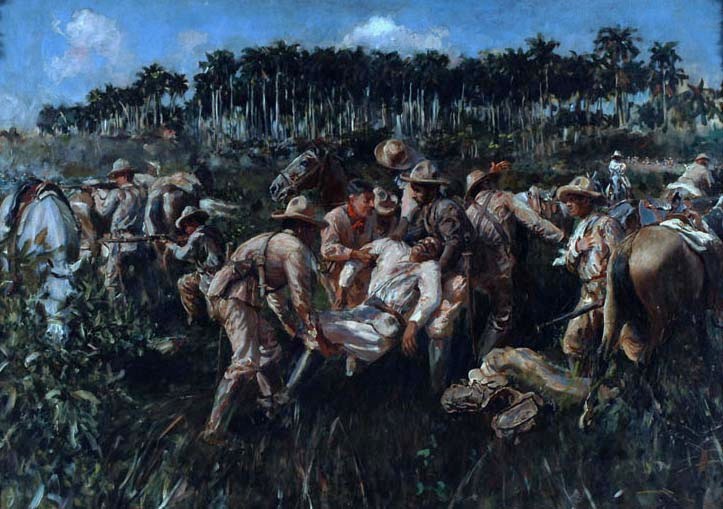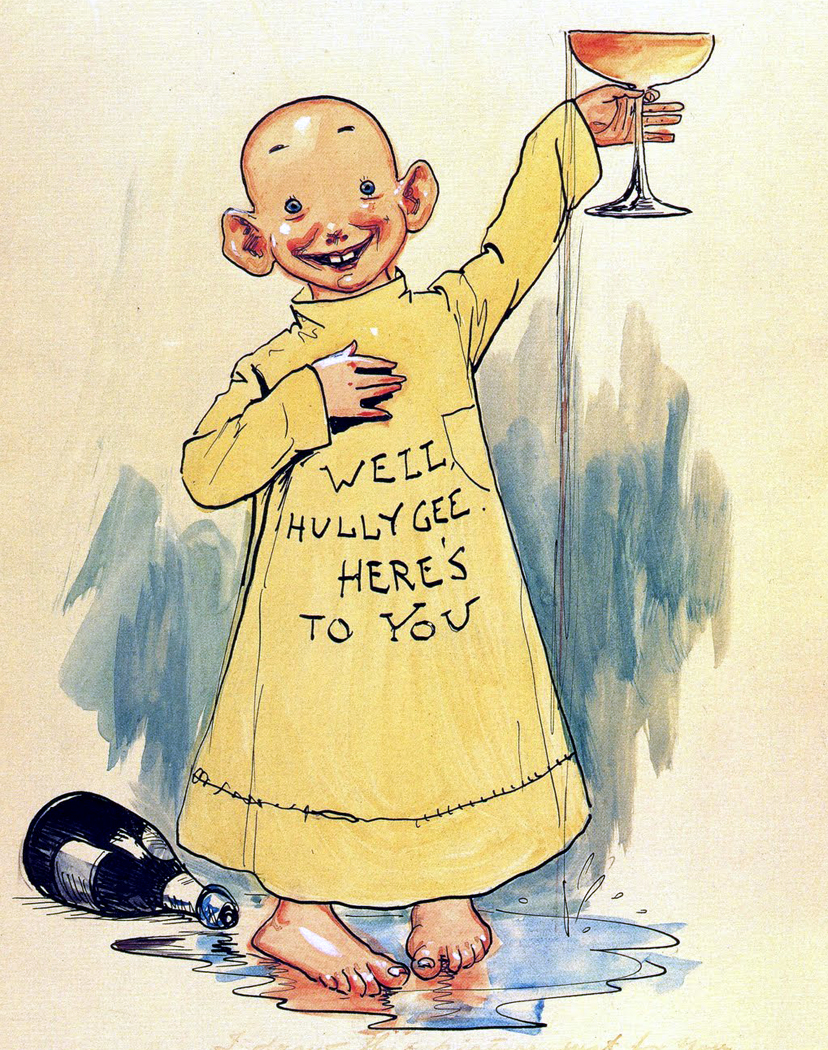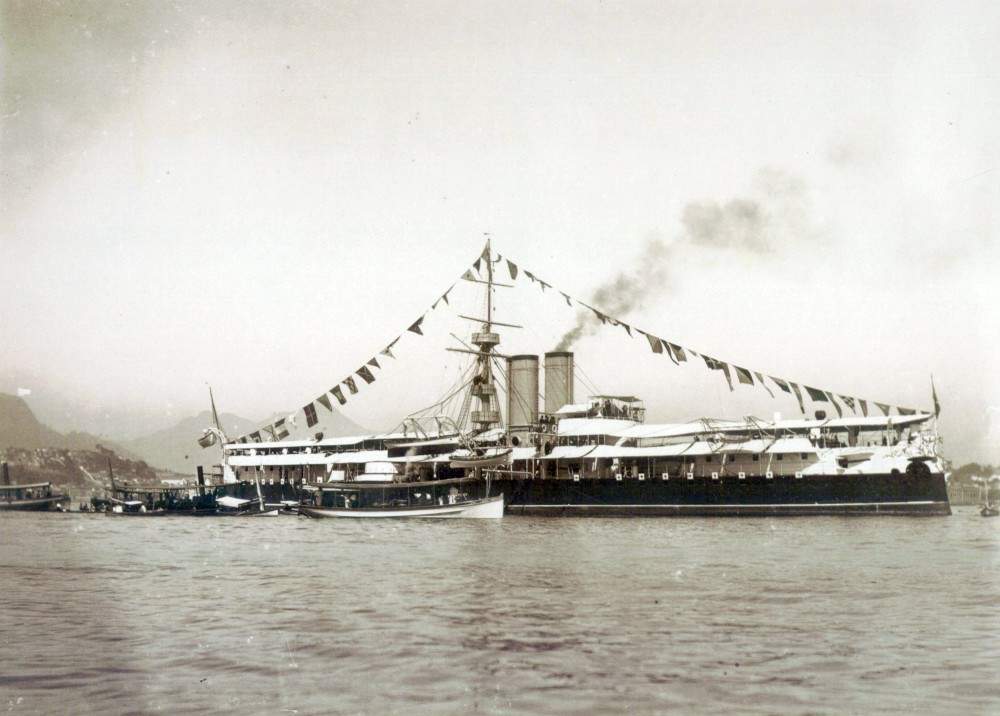|
United States Declaration Of War Upon Spain
On 25 April 1898, the United States Congress declared war upon Spain. The ensuing Spanish–American War resulted in a decisive victory for the United States, and arguably served as a transitional period for both nations. Spain saw its days of empire fade, as the United States saw the prospect of overseas empire emerge. The war was ended by the Treaty of Paris signed on December 10 that same year. Background The Spanish–American War originated out of the Cuban War of Independence, launched in February 1895. For decades the United States had watched political developments on Cuba, with which it had extensive economic ties. Historians have long debated America's intentions in becoming involved in the conflict. For a significant period during and after the war, selfless humanitarian interest in the fate of the Cuban people was accepted as the major impetus for the declaration of war. A supporting argument for this line of reasoning is that yellow journalism created an inflammatory mo ... [...More Info...] [...Related Items...] OR: [Wikipedia] [Google] [Baidu] |
William McKinley
William McKinley (January 29, 1843September 14, 1901) was the 25th president of the United States, serving from 1897 until his assassination in 1901. As a politician he led a realignment that made his Republican Party largely dominant in the industrial states and nationwide until the 1930s. He presided over victory in the Spanish–American War of 1898; gained control of Hawaii, Puerto Rico, the Philippines and Cuba; restored prosperity after a deep depression; rejected the inflationary monetary policy of free silver, keeping the nation on the gold standard; and raised protective tariffs to boost American industry and keep wages high. A Republican, McKinley was the last president to have served in the American Civil War; he was the only one to begin his service as an enlisted man, and end as a brevet major. After the war, he settled in Canton, Ohio, where he practiced law and married Ida Saxton. In 1876, McKinley was elected to Congress, where he became the Republican e ... [...More Info...] [...Related Items...] OR: [Wikipedia] [Google] [Baidu] |
United States Congress
The United States Congress is the legislature of the federal government of the United States. It is bicameral, composed of a lower body, the House of Representatives, and an upper body, the Senate. It meets in the U.S. Capitol in Washington, D.C. Senators and representatives are chosen through direct election, though vacancies in the Senate may be filled by a governor's appointment. Congress has 535 voting members: 100 senators and 435 representatives. The U.S. vice president has a vote in the Senate only when senators are evenly divided. The House of Representatives has six non-voting members. The sitting of a Congress is for a two-year term, at present, beginning every other January. Elections are held every even-numbered year on Election Day. The members of the House of Representatives are elected for the two-year term of a Congress. The Reapportionment Act of 1929 establishes that there be 435 representatives and the Uniform Congressional Redistricting Act requires ... [...More Info...] [...Related Items...] OR: [Wikipedia] [Google] [Baidu] |
Spanish–American War
, partof = the Philippine Revolution, the decolonization of the Americas, and the Cuban War of Independence , image = Collage infobox for Spanish-American War.jpg , image_size = 300px , caption = (clockwise from top left) , date = April 21 – August 13, 1898() , place = , casus = , result = American victory *Treaty of Paris (1898), Treaty of Paris of 1898 *Founding of the First Philippine Republic and beginning of the Philippine–American War * German–Spanish Treaty (1899), Spain sells to Germany the last colonies in the Pacific in 1899 and end of the Spanish Empire in Spanish colonization of the Americas, America and Asia. , territory = Spain relinquishes sovereignty over Cuba; cedes Puerto Rico, Guam and the Philippine Islands to the United States. $20 million paid to Spain by the United States for infrastructure owned by Spain. , combatant1 = United State ... [...More Info...] [...Related Items...] OR: [Wikipedia] [Google] [Baidu] |
Treaty Of Paris (1898)
The Treaty of Peace between the United States of America and the Kingdom of Spain, commonly known as the Treaty of Paris of 1898 ( fil, Kasunduan sa Paris ng 1898; es, Tratado de París de 1898), was a treaty signed by Spain and the United States on December 10, 1898, that ended the Spanish–American War. Under it, Spain relinquished all claim of sovereignty over and title to territories described there as ''the island of Porto Rico and other islands now under Spanish sovereignty in the West Indies, and the island of Guam in the Marianas or Ladrones'', the archipelago known as the Philippine Islands, and comprehending the islands lying within the following line:'' (details elided), and the Philippines to the United States. The cession of the Philippines involved a compensation of $20 million from the United States to Spain.Puerto Rico is spelled as "Porto Rico" in the treaty. The treaty came into effect on April 11, 1899, when the documents of ratification were exchanged. It w ... [...More Info...] [...Related Items...] OR: [Wikipedia] [Google] [Baidu] |
Cuban War Of Independence
The Cuban War of Independence (), fought from 1895 to 1898, was the last of three liberation wars that Cuba fought against Spain, the other two being the Ten Years' War (1868–1878) and the Little War (1879–1880). The final three months of the conflict escalated to become the Spanish–American War, with United States forces being deployed in Cuba, Puerto Rico, and the Philippine Islands against Spain. Historians disagree as to the extent that United States officials were motivated to intervene for humanitarian reasons but agree that yellow journalism exaggerated atrocities attributed to Spanish forces against Cuban civilians. Background During the years 1879–1888 of the so-called "Rewarding Truce", lasting for 17 years from the end of the Ten Years' War in 1878, there were fundamental social changes in Cuban society. With the abolition of slavery in October 1886, freedmen joined the ranks of farmers and the urban working class. The economy could no longer sustain itse ... [...More Info...] [...Related Items...] OR: [Wikipedia] [Google] [Baidu] |
Yellow Journalism
Yellow journalism and yellow press are American terms for journalism and associated newspapers that present little or no legitimate, well-researched news while instead using eye-catching headlines for increased sales. Techniques may include exaggerations of news events, scandal-mongering, or sensationalism. By extension, the term ''yellow journalism'' is used today as a pejorative to decry any journalism that treats news in an unprofessional or unethical fashion. In English, the term is chiefly used in the US. In the UK, a roughly equivalent term is ''tabloid journalism'', meaning journalism characteristic of tabloid newspapers, even if found elsewhere. Other languages, e.g. Russian ( Жёлтая пресса), sometimes have terms derived from the American term. A common source of such writing is called checkbook journalism, which is the controversial practice of news reporters paying sources for their information without verifying its truth or accuracy. In some countries it ... [...More Info...] [...Related Items...] OR: [Wikipedia] [Google] [Baidu] |
Panama Canal
The Panama Canal ( es, Canal de Panamá, link=no) is an artificial waterway in Panama that connects the Atlantic Ocean with the Pacific Ocean and divides North and South America. The canal cuts across the Isthmus of Panama and is a conduit for maritime trade. One of the largest and most difficult engineering projects ever undertaken, the Panama Canal shortcut greatly reduces the time for ships to travel between the Atlantic and Pacific oceans, enabling them to avoid the lengthy, hazardous Cape Horn route around the southernmost tip of South America via the Drake Passage or Strait of Magellan and the even less popular route through the Arctic Archipelago and the Bering Strait. Colombia, France, and later the United States controlled the territory surrounding the canal during construction. France began work on the canal in 1881, but stopped because of lack of investors' confidence due to engineering problems and a high worker mortality rate. The United States took over the ... [...More Info...] [...Related Items...] OR: [Wikipedia] [Google] [Baidu] |
USS Maine (ACR-1)
''Maine'' was a United States Navy ship that sank in Havana Harbor on February 15, 1898, contributing to the outbreak of the Spanish–American War in April. U.S. newspapers, engaging in yellow journalism to boost circulation, claimed that the Spanish were responsible for the ship's destruction. The phrase, "Remember the ''Maine!'' To hell with Spain!" became a rallying cry for action. Although the ''Maine'' explosion was not a direct cause, it served as a catalyst that accelerated the events leading up to the war. ''Maine'' is described as an armored cruiser or second-class battleship, depending on the source. Commissioned in 1895, she was the first U.S. Navy ship to be named after the state of Maine. ''Maine'' and the similar battleship were both represented as an advance in American warship design, reflecting the latest European naval developments. Both ships had two gun turrets staggered ''en échelon'', and full sailing masts were omitted due to the increased reliability ... [...More Info...] [...Related Items...] OR: [Wikipedia] [Google] [Baidu] |
William Randolph Hearst
William Randolph Hearst Sr. (; April 29, 1863 – August 14, 1951) was an American businessman, newspaper publisher, and politician known for developing the nation's largest newspaper chain and media company, Hearst Communications. His flamboyant methods of yellow journalism influenced the nation's popular media by emphasizing sensationalism and human interest stories. Hearst entered the publishing business in 1887 with Mitchell Trubitt after being given control of ''The San Francisco Examiner'' by his wealthy father, Senator George Hearst. After moving to New York City, Hearst acquired the '' New York Journal'' and fought a bitter circulation war with Joseph Pulitzer's '' New York World''. Hearst sold papers by printing giant headlines over lurid stories featuring crime, corruption, sex, and innuendos. Hearst acquired more newspapers and created a chain that numbered nearly 30 papers in major American cities at its peak. He later expanded to magazines, creating the largest ne ... [...More Info...] [...Related Items...] OR: [Wikipedia] [Google] [Baidu] |
Joseph Pulitzer
Joseph Pulitzer ( ; born Pulitzer József, ; April 10, 1847 – October 29, 1911) was a Hungarian-American politician and newspaper publisher of the ''St. Louis Post-Dispatch'' and the ''New York World''. He became a leading national figure in the Democratic Party (United States), Democratic Party and was elected congressman from New York. He crusaded against big business and corruption and helped keep the Statue of Liberty in New York. In the 1890s the fierce competition between his ''World'' and William Randolph Hearst's ''New York Journal-American, New York Journal'' caused both to develop the techniques of yellow journalism, which won over readers with sensationalism, sex, crime and graphic horrors. The wide appeal reached a million copies a day and opened the way to mass-circulation newspapers that depended on advertising revenue (rather than cover price or political party subsidies) and appealed to readers with multiple forms of news, gossip, entertainment and advertising. ... [...More Info...] [...Related Items...] OR: [Wikipedia] [Google] [Baidu] |
Teller Amendment
The Teller Amendment was an amendment to a joint resolution of the United States Congress, enacted on April 20, 1898, in reply to President William McKinley's War Message. It placed a condition on the United States military's presence in Cuba. According to the clause, the U.S. could not annex Cuba but only leave "control of the island to its people." In short, the U.S. would help Cuba gain independence and then withdraw all its troops from the country. McKinley's war message In the political atmosphere in the U.S. growing out of the Cuban struggle for independence, and following on the February 15, 1898, sinking of the USS ''Maine'' in Havana harbor President William McKinley, on 11 April 1898, asked the Congress, ... to authorize and empower the President to take measures to secure a full and final termination of hostilities between the government of Spain and the people of Cuba, and to ensure in the island the establishment of a stable government, capable of maintaining order ... [...More Info...] [...Related Items...] OR: [Wikipedia] [Google] [Baidu] |
Spanish Declaration Of War On The United States
Spanish might refer to: * Items from or related to Spain: **Spaniards are a nation and ethnic group indigenous to Spain **Spanish language, spoken in Spain and many Latin American countries **Spanish cuisine Other places * Spanish, Ontario, Canada * Spanish River (other), the name of several rivers * Spanish Town, Jamaica Other uses * John J. Spanish (1922–2019), American politician * "Spanish" (song), a single by Craig David, 2003 See also * * * Español (other) * Spain (other) * España (other) * Espanola (other) * Hispania, the Roman and Greek name for the Iberian Peninsula * Hispanic, the people, nations, and cultures that have a historical link to Spain * Hispanic (other) * Hispanism * Spain (other) * National and regional identity in Spain * Culture of Spain * Spanish Fort (other) Spanish Fort or Old Spanish Fort may refer to: United States * Spanish Fort, Alabama, a city * Spanish Fo ... [...More Info...] [...Related Items...] OR: [Wikipedia] [Google] [Baidu] |







